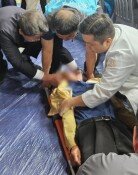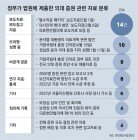[Opinion] Negotiation Skills
According to the research conducted by global negotiation expert Jeanne Brett, Northwestern University professor, Korean business people ranked lowest in terms of negotiation skills behind their counterparts from 16 countries. Brett, who recently visited Korea, indirectly said in a special lecture held in the Korea Trade-Investment Promotion Agency (KOTRA), Negotiation skills differ from culture to culture. However, it was easy to conclude that Koreans have tendency to be self-centered and excessively aggressive in negotiations, which can be regarded as a weakness. She emphasized that negotiations can yield the best results when the parties involved interact with each other.
Professor Herb Cohen of Michigan State University, known as a negotiation guru, also visited Korea a month ago and said, The Korean government and companies do not have sophisticated negotiation skills. To be more specific, they step back too easily when provoked by their counterparts and reconcile too hastily. He also pointed out that Koreans are regarded as easy prey in international negotiations since they are too quick to reveal their intentions.
What can be inferred from these two experts? Their advice is that Koreans must be prepared with the best alternative when participating in negotiations. The best alternative refers to the second best card they can show if the negotiations fail to yield the best predicted results. Bretts research revealed that Korean business people had faint ideas about the best alternative. This problem was seen in massive deal negotiations involving the selling of Korea First Bank and Daewoo Automobiles. What is worse, not many have learned their lesson despite these painful and pricey negotiation experiences.
Apologizing promptly is also part of negotiation skills, not only in business, but also in politics. There are many cases where hiding truth produced bigger costs. Cohen has a simple piece of advice on this: Reveal all the bad news before your competitor exposes it. Be responsible for what you do rather than blaming circumstances or others.
These principles also apply to the presidential election, which can be seen as a negotiating process between the candidates and voters. However, not many seem to have taken these words to heart.
Editorial Writer Hong Gwon-hee, konihong@donga.com
Headline News
- Korean president faces debate limitations unlike U.S. counterpart
- KEPCO's first quarter profits failed to meet market expectations
- Teenagers are left out of discussions about national pension
- 2 consultative bodies submit minutes regarding increasing number of medical students
- Woo Sang-hyuk's rivalry and friendship transcend borders







